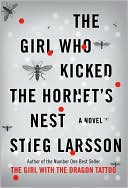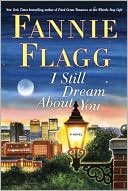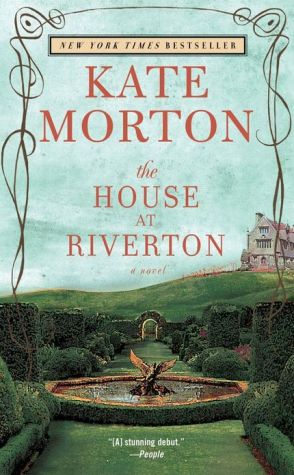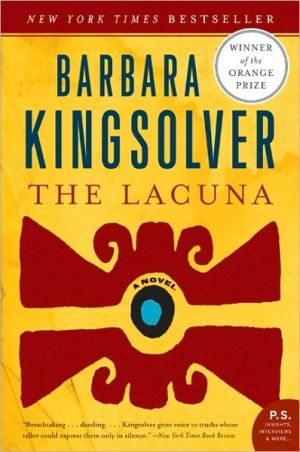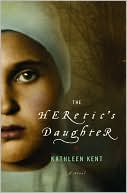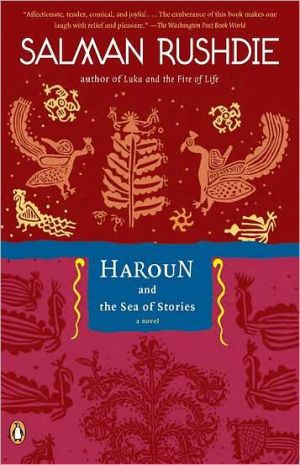A Parchment of Leaves
Winner-Kentucky Novel of the Year, 2003\ Winner-Award for Special Achievement from Fellowship of Southern Writers\ Nominee-Southern Book Critics Circle Prize\ Nominee-BookSense Book of the Year (longlist) \ "So it is that Vine, Cherokee-born and raised in the early 1900s, trains her eye on a young white man, forsaking her family and their homeland to settle in with Saul's people: his smart-as-a-whip, slow-to-love mother, Esme; his brother Aaron, a gifted banjo player, hot tempered and...
Search in google:
When Silas House made his debut with Clay's Quilt last year, it touched a nerve not just in his home state (where it quickly became a bestseller), but all across the country. Glowing reviews-from USA Today (House is letter-perfect with his first novel), to the Philadelphia Inquirer (Compelling. . . . House knows what's important and reminds us of the value of family and home, love and loyalty), to the Mobile Register (Poetic, haunting), and everywhere in between-established him as a writer to watch. His second novel won't disappoint. Set in 1917, A PARCHMENT OF LEAVES tells the story of Vine, a beautiful Cherokee woman who marries a white man, forsaking her family and their homeland to settle in with his people and make a home in the heart of the mountains. Her mother has strange forebodings that all will not go well, and she's right. Vine is viewed as an outsider, treated with contempt by other townspeople. Add to that her brother-in-law's fixation on her, and Vine's life becomes more complicated than she could have ever imagined. In the violent turn of events that ensues, she learns what it means to forgive others and, most important, how to forgive herself. As haunting as an old-time ballad, A PARCHMENT OF LEAVES is filled with the imagery, dialect, music, and thrumming life of the Kentucky mountains. For Silas House, whose great-grandmother was Cherokee, this novel is also a tribute to the family whose spirit formed him.Brad WatsonSilas House writes as if the whole history of his place and people resides within his heart. . . a beautiful, heartbreaking novel.
One\ Those words flew out of my mouth, as sneaky and surprising as little birds that had been waiting behind my teeth to get out. Apparently, they did the trick. I could see my announcement making a fist around his heart. I was so full of myself, so confident. One thing I knowed I could do was charm a man until he couldn’t hardly stand it.\ I wanted Saul Sullivan, plain and simple. That was all there was to it. I didn’t love him—that came later—but I thought that I did. I mistook lust for love, I guess. I knowed that I could fill up some hole that he had inside of himself and hadn’t even been aware of until laying eyes on me. Saul looked to me like he needed to lay his head down in somebody’s lap and let them run their hand in a circle on his back until he was lulled off to sleep. I knowed that I was the person to do it. I had been waiting a long time for such a feeling to come to me.\ That whole summer, I kept one eye on the road as I went about my chores. I throwed corn to the chickens without even watching them, bent over to pick beans and looked upside down at the road, where I might see his horse come trotting down foamy mouthed and big eyed. At first, when I caught sight of Saul heading down into Redbud Camp, I would turn back to the task at hand and make him think I hadn’t seen him coming. He’d have to stop at the gate and yell out for me. I did this just to hear him holler. I loved his full-throated cry: “Vine! Come here to me!” I loved to hear my name on his tongue. But as summer steamed on, I couldn’t bring myself to continue such games, and I’d rush out to the road as soon as I seen him coming. I’d throw down the hoe or the bucket of blackberries or whatever I was packing. I’d leave one of my little cousins that I was supposed to be tending to, would rush off the porch even though Mama had ordered me to peel potatoes. The more he come by, the harder it was to stay away from him.\ Mama frowned on all of this. Every time I’d get back from being with him, she’d wear a long, dark face and not meet my eyes. “It’s not fitting,” she said. “People ought to court their own kind.”\ “There ain’t no Cherokee boys to court,” I said. “They’ve left here.”\ “Just the same,” Mama said, and dashed water out onto the yard. Her face was square and unmovable. “Them Irish are all drunks.”\ I couldn’t help but laugh at her, even though I knew this would make her furious. “Good Lord, Mama, that’s what they say about Cherokees, too.”\ Daddy made no objections. Him and Saul went hunting together and stood around in the yard kicking at the dust while they talked about guns and dogs. Saul brought him quarts of moonshine and sacks of ginseng. We were kin to everybody in Redbud Camp, and when they seen that Daddy had warmed to Saul, they started speaking to me again. Everybody looked up to Daddy, and if he approved of Saul, they felt required to do the same. My aunts Hazel and Zelda and Tressy even seemed to be taken with him. They talked about him while they hung clothes on the line, while they canned kraut in the shade, when everyone gathered to hear Daddy’s hunting tales at dusk.\ “Wonder if he’s freckled all over,” Hazel whispered. She was much older than me but had been widowed at a young age, and we had always been like sisters. She laughed behind cupped hands. “You know, down there.”\ “You don’t know, do you, Vine?” Tressy asked, jabbing her elbow into my ribs.\ “They say the Irish are akin to horses,” Zelda said, “if you know what I mean.”\ I had been around horses enough to know what this meant, so when they all collapsed in laughter, I had to join in.\ I couldn’t have cared less if they loved him or if they had all hated him and met him at the bridge with snarls and shotguns. I had decided that I was going to have him.\ Our courting never took us past the mouth of Redbud. Even though Daddy thought a lot of Saul, he wouldn’t allow it. Daddy had said that I was his most precious stone. “I’ll let you trail from my fingers, but not be plucked,” Daddy told me one evening when Saul came calling.\ I didn’t care where we went, as long as he come to see me, but I would have liked to ride off on that fine horse with him a time or two without worrying how far we went. I thought a lot about how it would feel to just slip away, to just wrap my arms around Saul’s waist and take off. We never got to do that, though. We always went down to the confluence of Redbud Creek and the Black Banks River. There was a great big rock there, round as an unbaked biscuit. It had a crooked nose that jutted out over the water. This was our spot.\ Summer was barely gone before he asked me to marry him. I remember the way the air smelled that day—like blackberries ripe and about to bust on the vines. The sky was without one stain of cloud, and there didn’t seem to be a sound besides that of his horse scratching its neck against a scaly-barked hickory and the pretty racket of the falls. We sat there where we always did, watching the creek fall into the river. The creek was so fast and loud that you couldn’t do much talking there. This wall of noise gave us the chance to sit there and study each other. I spent hours looking at the veins in his arms, the calluses on his hands. He had taken a job at the sawmill and this had made his arms firm, his hands much bigger. When we wanted to speak, we’d have to either holler or lean over to each other’s ears. It was a good courting place on this account. Any two people can set and jaw all day long, but it takes two people right for each other to set together and just be quiet. And it’s good to have to talk close to somebody’s ear. Sometimes when he did this, his hot breath would send a shudder all through me.\ That day, he run his rough hand down the whole length of my hair and smoothed the ends out onto the rock behind me. I closed my eyes and savored the feeling of him touching me in such a way. I have always believed that somebody touching your head is a sign of love, and his doing so got to me so badly that I felt like crying out. It seemed better to me than if he had leaned me back onto the rock and set into kissing. I knowed exactly how cool my hair was beneath his fingers, how his big palm could have fit my head just like a cap if he had taken the notion to position it in such a way, and I closed my eyes.\ The closer it got to dark, the louder the water seemed to be. The sky was red at the horizon, and the moon drifted like a white melon rind in the purple sky opposite.\ “Vine?” I heard him yell.\ I turned to face him. “What?”\ “We ought to just get married,” he hollered.\ I nodded. “Well,” I mouthed. I didn’t want to scream out my acceptance, but I sure felt like it. I turned back to the creek and was aware of my shoulders arching up in the smile that just about cut my face in half.\ ***\ I stood within the shadows of the porch when Saul took Daddy out in the yard to ask for my hand. I had told Saul that it was customary to ask the mother of a Cherokee girl first, but he felt it would be a betrayal of Daddy if he did not tell him before anyone else. They were friends, after all.\ Daddy leaned against the gate, his face made darker and older by the dying light. I knowed Daddy would say it was all right, but that he’d tell Saul to ask for Mama’s permission. I seen Daddy nod his head and put his finger to the touch-me-not bush that hung on the fence. All of the flowers were gone from it now, for summer was beginning to die. For some reason, I felt sick to my stomach.\ Mama’s voice was hot beside my ear. “It’s been decided, then.”\ “Not unless you say so.”\ “What do you expect me to do? Mash out what you want so bad?” She stood there in the doorway, folding a sheet with such force that I thought the creases might never come out. She worked it into a neat square, then snapped it out onto the still air and folded it again.\ “I’ll tell him to go ahead with it, but you know it ain’t what I want. It’s not right. Your daddy’s great-great-granny was killed by white men. My people bout starved to death hiding in them mountains when they moved everbody out. I can’t forgive that.”\ “That was a long time ago,” I said. “Eighty years, almost.”\ “Might as well been yesterday.”\ “Daddy says we’re Americans now,” I said, searching for something to say.\ Mama’s eyes were small and black and her skin seemed to be stretched tightly on her skull. I turned away, as I couldn’t look at her. “Tetsalagia,” Mama said. I am Cherokee. I knew this much of our old language, as Mama said it to Daddy when they got into fights about how their children ought to be raised up. “That’s his way,” she said. “Not mine.”\ “Don’t do me thisaway, Mama. Your own sister married a white man.”\ “And I ain’t heard tell of her since. She’s forgot everything about herself.”\ “I never knowed much to begin with,” I said, more hateful than I intended. “You all act like the past is a secret.”\ “Well, that’s your Daddy’s fault. Not mine.”\ In the yard, Saul and Daddy stood with their hands in their pockets. I realized that their friendship was gone. They’d never go hunting together or go on with their notion of butchering a hog together this winter. Now they would only be father and son-in-law, one dodging the other. Saul would take me away from this creek, and Daddy would hold it against him, whether he intended to or not. They looked like they were searching for something else to talk about.\ “You know you’ll have to leave this place,” she said, like she could read my thoughts. She whispered, as if they might hear us. “Leave Redbud Camp. All the people you’ve knowed your whole life.”\ “I know it, Mama. I’m eighteen year old, though. Most girls my age has babies,” I said, but this didn’t make a bit of difference to her. She put her hand on my arm, and I turned to face her.\ “I don’t want you to leave me,” she said. I knowed this had been hard for her to put into words; she was not the kind of woman who said what her heart needed to announce. I listened for tears in her voice but could hear none. She was too stubborn to cry for me, but her words just about killed me. “I’m afraid I’ll never see you again.”\ “That’s foolishness,” I said. “You know I’d never let that happen.”\ There was movement down on the yard, and I watched as Daddy headed up the road. I could see that he was hurt over my leaving. He was walking up on the mountain to think awhile. Most of my uncles got drunk when they were tore up, but Daddy always just went up on Redbud and listened to the wind whistle in the rocks.\ Saul strode across the yard, as deliberate and broad shouldered as a man plowing a field. I eased past Mama. I didn’t want to be out there when he asked her for my hand. I didn’t want to remember the way her face would look when she agreed to it.\ I lit a lamp and made the wick long so that I could see good by it. I carried the lamp through each little room, trying to memorize the house I had knowed all my life. I made a list of two or three things I wanted to take: one of the quilts Mama and her sisters had made, the cedar box my granddaddy had carved, the walnut bushel basket I had always gathered my beans in. I was homesick already and hadn’t even left. I sucked in the smell of the place, memorized the squeaks in the floor. I run my hands over Mama’s enamel dishpan, wrapped my fingers about the barrel of the shotgun Daddy kept by the door.\ When I walked back into the front room, I knowed Saul would be standing there in the door. I didn’t run to him. I set the lamp down on a low table so that my face would be lost to the grayness. I didn’t want him to see the hesitation on my face. He was so happy he was breathing hard. “It’s decided,” he said.\ Still I stood in the center of the room, although I knowed he wanted me to come be folded up in his big arms.\ “I know we’ll have to live with your people,” I said, “so I want to marry amongst mine.”\ “All right,” he said, and then he come to me and picked me up. I cried into the nape of his neck, not knowing if it was from grief or happiness, for both gave me wild stirrings in my gut.
\ Brad WatsonSilas House writes as if the whole history of his place and people resides within his heart. . . a beautiful, heartbreaking novel.\ \ \ \ \ Gwyn Hyman RubioExquisite!\ \ \ Sharyn McCrumbAn eloquent and moving novel of the Appalachian South from one of her most promising new writers.\ \ \ \ \ Publishers WeeklyHouse offers a poignant, evocative look at the turmoil that plagues a rural Kentucky family during WWI in his solid second novel, which begins when Saul Sullivan takes a shine to a mysterious, beautiful Cherokee woman named Vine. Courtship quickly leads to marriage and a newborn girl named Birdie, but trouble surfaces when Saul's younger brother, Aaron, an unfocused dreamer who longs for a more fulfilling life than his country existence as a laborer, also becomes attracted to Vine. Aaron's opportunity to express his longings comes when Saul leaves to work at a logging camp, hoping to provide some luxuries for his family while supporting the war effort. Vine spurns Aaron's initial advances and manages to drive him away, but the younger brother returns with a young mixed-race bride from East Tennessee who looks exactly like Vine, and soon he is drinking heavily and exercising his formidable temper on his newly pregnant wife. Saul returns briefly to try to straighten out his brother but, when he departs, Aaron turns his attentions on Vine again, who shoots Aaron after he rapes her and goes after Birdie, then buries the body on top of a mountain near the family homestead. A slightly more original story line would have made this an exceptional novel, but House's lovely storytelling, graceful prose, strong characters and his feel for Southern rural life distinguish it. Agent, ICM. (Oct. 18) Forecast: Solid local sales are the bedrock on which this novel's success will rest, but strong reviews, a 15-city author tour and House's NPR connection (he is a frequent contributor) are certain to broaden House's audience. Copyright 2002 Cahners Business Information.\ \ \ \ \ Library JournalIn 1917 rural Kentucky, a young Cherokee woman named Vine, rumored to cast spells on unsuspecting men, falls in love with local Irishman Saul Sullivan, whom she eventually marries. This second novel by Appalachian writer House (Clay's Quilt) tells the story of Vine and Saul's tender relationship and the prejudice they face and eventually overcome. While Vine was not raised according to Cherokee customs, she is still aware of being seen as an outsider when she leaves her Cherokee community to be with her husband. People are drawn to her gentle and generous personality, however, and soon she forms enduring friendships with her hard-working mother-in-law, Esme, and feisty and independent midwife Serena. When World War I erupts and Saul temporarily takes a better-paying job far from home, Vine finds herself trying to ward off the unwanted advances of Saul's restless younger brother, Aaron, who declares his own love for Vine. A deep respect for the natural world and the enduring spirit of the human heart are what make this book worth reading and remembering. Recommended for all fiction collections.-Maureen Neville, Trenton P.L., NJ Copyright 2002 Cahners Business Information.\ \ \ \ \ Kirkus ReviewsBreathtaking both for its beauty and its pain, House's second (after Clay's Quilt, 2001) tells a finely nuanced tale of a Kentucky mountain family in the tumultuous WWI era, as the taking of a Cherokee bride unleashes passions that create life and destroy it. Vine seems a vision to young Saul when he first sees her as he and his brother Aaron ride by her house on horseback, but she quickly proves real, giving emergency treatment when Aaron is bitten by a copperhead. The feelings between Saul and Vine being mutual, their courtship is brief despite her mother's misgivings, and she moves from all-Cherokee Redbud Camp to all-white God's Creek, where Saul and Aaron live with their mother Esme. For a time all is well: the couple build their own house, Vine gives birth to daughter Birdie and becomes a beloved daughter to Esme. But work pressures increase for Saul, a logging foreman, as the clouds of war gather, and he must go away to distant mountains from which he can rarely get time off to travel home. In his absence, Aaron moves from brazenly staring at Vine to making an unwelcome advance. Rebuffed, he disappears, much to his doting mother's dismay. When he returns a few months later with a pregnant bride of his own, however, Esme is not much relieved, as Aaron beats his wife, drinks, disappears for days at a time, and still lusts after Vine. His attempt to rape her in front of Birdie is the point of no return: Vine kills him in self-defense but keeps it a secret, watching in agony as Aaron's "disappearance" eats away at Esme and at Aaron's wife. Finally, she'll see her secret come between her and Saul when the war ends and he returns home for good. From the raptures of Appalachian Spring tothe many, complicated facets of women's lives in that time and place: a superb combination of wonder and suffering. Author tour\ \

